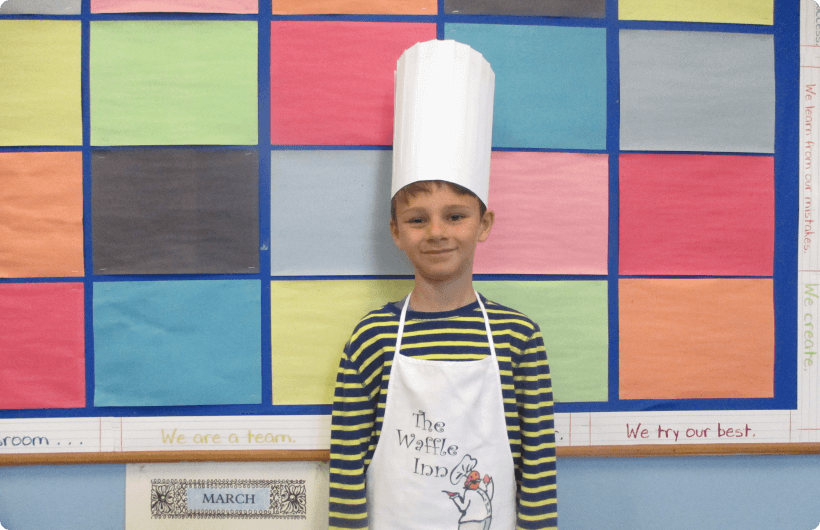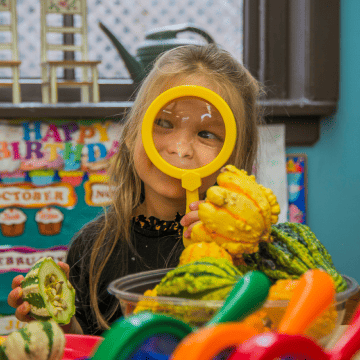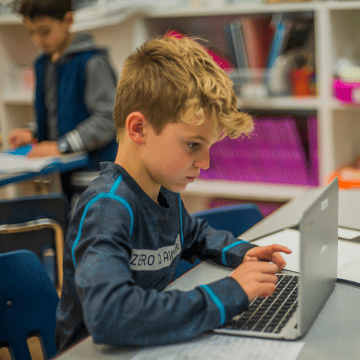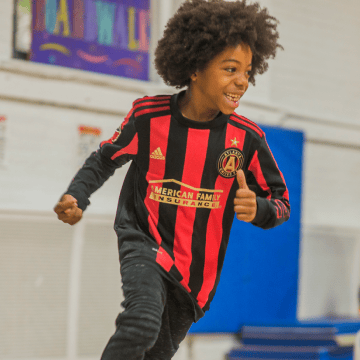Grade 1 Curriculum
Overview
First grade is a time when children build strong friendships with their peers, and these relationships become just as significant as those with their families. They thrive on encouragement and have an incredible capacity for joy. Students frequently work in small groups, which fosters social development and relationship building, though the classroom also supports those who prefer independent work. The environment is designed to promote independence and growth.
By the end of First grade, students run their milestone project, the Waffle Inn. This long-standing tradition at All Saints encourages social First Graders to collaborate and helps them understand that each person in a business or community plays a vital role in the success of the whole.
Language Arts
Building on the skills developed in Kindergarten, the First Grade Language Arts curriculum emphasizes personalized instruction through small-group learning. Classroom teachers intentionally structure lessons to maximize individual attention and support. In Handwriting, students refine their letter formation skills.
Phonemic awareness instruction in First Grade covers short and long vowels, double consonants, l, r, and s clusters, contractions, final clusters, and the digraphs sh, th, wh, ch, and tch. Writing instruction focuses on foundational grammar skills, including proper capitalization and punctuation, naming and action words, sentence structure, proper nouns and pronouns, and present-tense verb endings (-s, -ed, and -ing).
Mathematics
First Grade is a pivotal time for developing mathematical thinking. The curriculum introduces a wide range of concepts, encouraging students to explore them in depth. Teachers emphasize problem-solving strategies and encourage students to articulate their methods, fostering a deeper understanding and collaborative learning.
First Grade math units include numerical operations, basic addition and subtraction, number sense (counting to 100, number lines, and skip counting), time, graphing, calendars, money, and geometry (2D and 3D shapes, transformations, and symmetry). Students also explore standard and non-standard measurement, an introduction to double-digit addition and subtraction, estimation, and place value.
Science
The First Grade science curriculum builds on students’ natural curiosity about the world by introducing more structured experimentation and hands-on exploration. Students are encouraged to “think like scientists” as they conduct experiments to deepen their understanding of the natural world. Science instruction emphasizes forming and testing hypotheses, using scientific tools appropriately, and drawing logical conclusions based on evidence. First Grade units include Animals, Plants, Environments, Earth’s Resources, Weather and Seasons, Objects in the Sky, All About Matter, and Forces and Energy.
Social Studies
To deepen their understanding of the world around them, First Graders begin by exploring their school environment as a foundation for investigating their neighborhood and community. They learn about the components of a community, including its people, businesses, and municipal structures that support safety and uphold residents’ rights.
Through an in-depth study of Hoboken, students examine key aspects of the community, such as parks and recreation, city services, and retail. Later in the year, they apply this knowledge to their study of colonial communities, enabling them to compare and contrast modern-day communities with those of the past.
Co-Curriculars
First Grade students participate in a variety of co-curricular activities, including music, dance, art, physical education, and world language. For more details, please visit our Beyond Core Academics page.
Milestone Projects

Grade 1 ~ Waffle Inn
The Waffle Inn, the First Grade milestone project, is a longstanding tradition at All Saints. Each year, the students transform an area of the school into a restaurant with the house specialty being – you guessed it – waffles!
We'd Love to Hear from You:
LOCATIONS
707 Washington Street, Hoboken, NJ, 07030
527 Clinton St, Hoboken, NJ 07030
CONTACT



